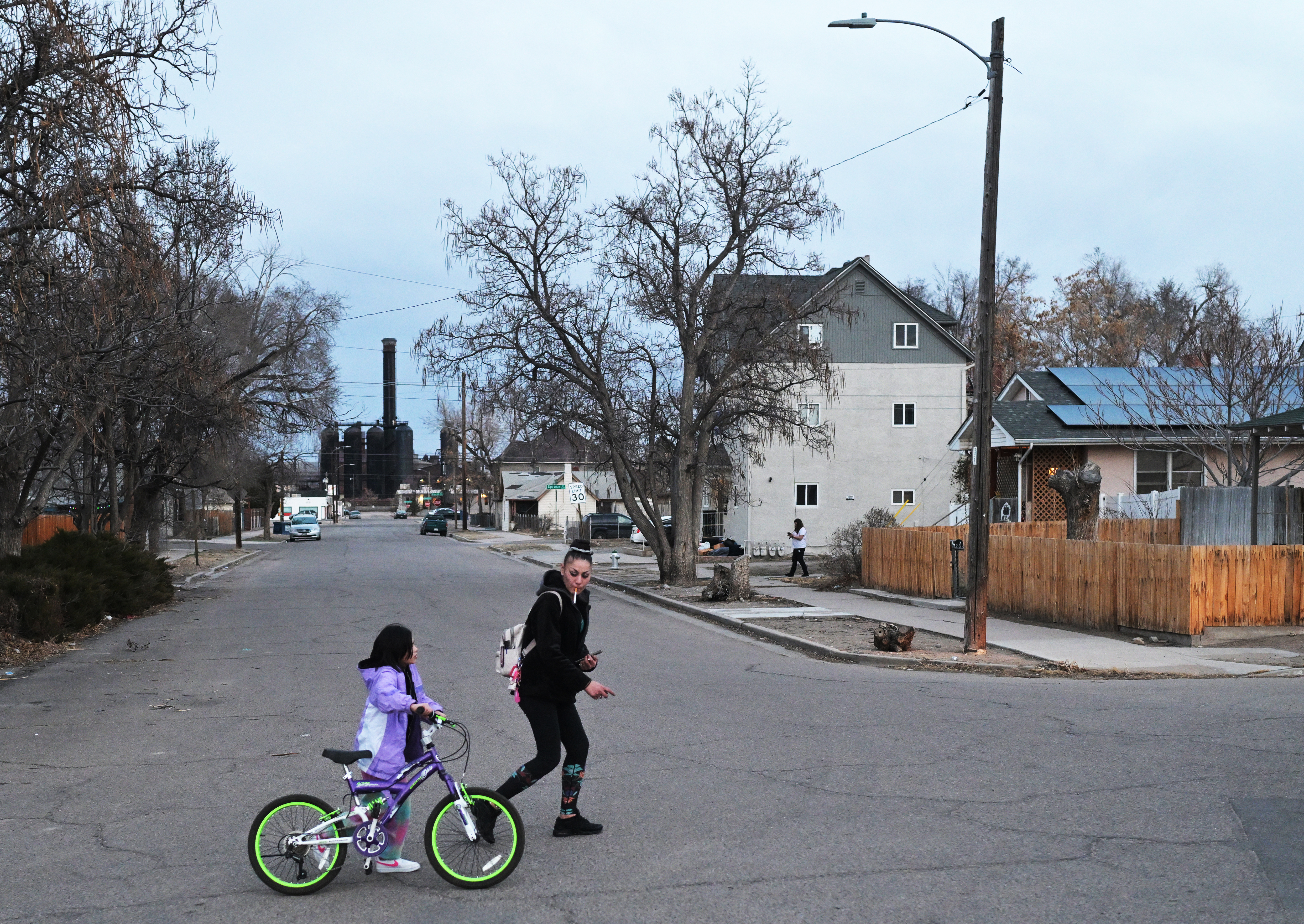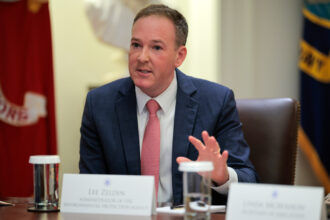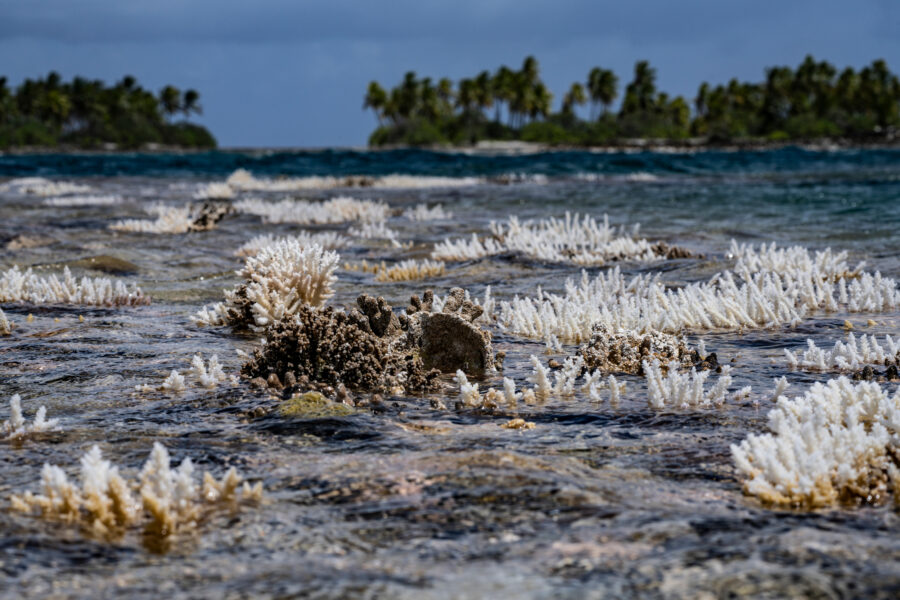Environmental justice nonprofits, local governments and Indigenous groups represented by the Southern Environmental Law Center filed notice on Tuesday that they will appeal a U.S. District Court judge’s dismissal of their case seeking to reverse the Trump administration’s decision to cancel the $3 billion Environmental and Climate Justice Block Grant Program in February.
In the District of Columbia, Judge Richard Leon ruled in late August that he could not reinstate the grants, citing two recent Supreme Court decisions that grant terminations by the Trump administration must now be contested in the U.S. Court of Federal Claims, the venue for contract disputes with the federal government.
“Judge Leon’s decision was on jurisdiction,” said Ben Grillot, a senior attorney with the Southern Environmental Law Center. “We disagree and believe that the district court does in fact have jurisdiction because this was a program-wide decision to terminate the entire Environmental and Climate Justice Block Grant Program.”
Along with the SELC, the plaintiffs are also represented by Earthjustice, the Public Rights Project and Lawyers for Good Government.
The case in D.C. is the second of two actions by the Southern Environmental Law Center challenging Trump’s administrative rescinding of federal funds authorized by Congress. The second case, filed in Charleston, South Carolina, resulted in an unfreezing of funds. The Trump administration is now appealing that ruling.
The D.C. case is based on what the plaintiffs say is the illegality of two executive orders: “Unleashing American Energy,” which directed federal agencies to stop spending funds from the Inflation Reduction Act; and “Ending Radical and Wasteful Government DEI Programs and Preferencing,” which ordered such funding to end within 60 days.
Following those orders, Travis Voyles, the Environmental Protection Agency’s assistant deputy administrator and Virginia’s secretary of natural and historic resources, cancelled the environmental justice grants. The environmentalists argue that cancellation came wholesale without the required detailed analysis of each program.
Trump’s EPA countered that, after canceling the grants, Congress passed the One Big Beautiful Bill Act, which included a line rescinding unobligated funds. But the environmental justice plaintiffs argued that the funds had already been obligated, citing a Congressional Budget Office finding that only about $500 million of the $3 billion in environmental justice grants hadn’t gone out the door.
Judge Leon ultimately ordered a dismissal of the plaintiff’s case, saying the dispute should be argued with the U.S. Federal Claims Court, which is where contract disputes are heard. The plaintiffs disagree, arguing that the administration’s actions, taken separately and illegally, breached the Constitution’s separation of powers by terminating a grant program that Congress had Congress.
“This case is not only about the need to continue the critically important work that was supported by these grants across the nation,” said Tom Cormons, executive director of Appalachian Voices, one of the nonprofit plaintiffs. “It is about defending basic tenets of the rule of law and our Constitution that are necessary for a healthy democracy to function.”
Along with the appeal, the SELC filed a motion for an injunction seeking a pause of the grant program’s funds, which were in the accounts of grant recipients, according to Grillot. The plaintiffs are also seeking injunctive relief, or a pause, on the EPA’s rescission process and return of funds to the treasury, which would be premature if the plaintiffs prevail.
The EPA declined to comment on the current or pending litigation.
Meanwhile, projects to help communities at the height of hurricane season, which runs through the end of November, are held up, without the expected grant funding. Appalachian Voices received a $500,000 grant that would have been obligated for five projects in Southwest Virginia after a rigorous verification process, said Emma Kelly, the new economy manager for Appalachian Voices.
Since the cancellation, the group has pivoted to alternative funding sources. In the case of a resiliency hub in Dungannon, Virginia, for people to use during storm disasters, new funds came by way of Google.
Other communities are seeking planning funds from the state’s Community Flood Preparedness Fund, which is flush with revenues from the Regional Greenhouse Gas Initiative, a carbon market that Gov. Glenn Youngkin was found to have illegally withdrawn the state from.
This story is funded by readers like you.
Our nonprofit newsroom provides award-winning climate coverage free of charge and advertising. We rely on donations from readers like you to keep going. Please donate now to support our work.
Donate NowVirginia has dealt with inland flooding and largely prepared for one major storm this season, which came with Hurricane Erin along the East Coast in August. But the hollers of Appalachia, which saw 3.5 inches of rainfall over a couple of hours at one point in July, are not shielded from extreme weather events.
“I will breathe easier when October is over,” Kelly said. “I do think we’ll probably see at least one more flash flood in the coal fields this year.”
Youngkin, a Trump ally, recently praised a separate state-funded flood mitigation project that involved the purchase of Mayo Island in Richmond. The project would transform an area mostly covered by a parking lot into a nature-based park, aiming to prevent damage from James River surges.
After an event marking the purchase, he refused to answer questions from Inside Climate News about climate change and its causes.
“I’ll talk to you afterwards…I’m happy to talk about it,” Youngkin said as he left the event.
About This Story
Perhaps you noticed: This story, like all the news we publish, is free to read. That’s because Inside Climate News is a 501c3 nonprofit organization. We do not charge a subscription fee, lock our news behind a paywall, or clutter our website with ads. We make our news on climate and the environment freely available to you and anyone who wants it.
That’s not all. We also share our news for free with scores of other media organizations around the country. Many of them can’t afford to do environmental journalism of their own. We’ve built bureaus from coast to coast to report local stories, collaborate with local newsrooms and co-publish articles so that this vital work is shared as widely as possible.
Two of us launched ICN in 2007. Six years later we earned a Pulitzer Prize for National Reporting, and now we run the oldest and largest dedicated climate newsroom in the nation. We tell the story in all its complexity. We hold polluters accountable. We expose environmental injustice. We debunk misinformation. We scrutinize solutions and inspire action.
Donations from readers like you fund every aspect of what we do. If you don’t already, will you support our ongoing work, our reporting on the biggest crisis facing our planet, and help us reach even more readers in more places?
Please take a moment to make a tax-deductible donation. Every one of them makes a difference.
Thank you,













